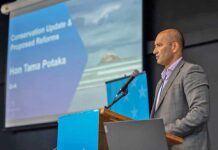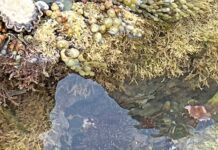The quality of my reading material has shot up recently. It started with some research, a recommended reading list and a long-delayed trip to the library seeking Tyson Yunkaporta’s Sand Talk: How Indigenous Thinking Can Save the World, along with The Order of Things, published in 1966 by French social theorist Michel Foucault (1926–1984).
The task was to look at the world from unexplored and unfamiliar perspectives.
Foucault presented sweeping, erudite stuff as the Classical thought systems of 17th century Europe that linked nature and knowledge were giving way to the new sciences and language of biology, philology and political economy that ruled our thinking for the next 300 years.
The result is an exotic excavation of the sciences to unearth old patterns and reveal the shocking arbitrariness of the truths we have lived by in the Modern episteme – a term Foucault coined to refer to the “possibility of knowledge” that determines the development of thought and knowledge in a given period. It embraced capitalism and Descartes’ perception of the Earth as a resource over which humanity has dominion.
This leaves us waiting for a new and as yet undefined framework to make specific new types of knowledge possible and for as-yet undefined rules that can allow for the emergence of new disciplines and structures that determine what can be thought and said from here on in.
At the other end of the spectrum but equally mind-bending, Sand Talk has been hailed as the first fruit of Australian thinkers claiming the right to interpret Aboriginal Australia. The respect and unity of thousands of years of harmony is its own episteme; holistic, respectful and effortless.
Nothing in either book is any more – or less – disturbing than the global news this morning.
The Dictator’s Handbook – Why bad behaviour is almost always good politics is harder to swallow but inexorable. Also shrewd, concise, and wildly funny. Authored by Bueno de Mesquita and Alastair Smith, it was published in 2022.
With the fallacies of monopoly capitalism finally an open book, we see the global hegemonies and mega-corporations scraping the barrel of the Earth’s natural bounty and swallowing more and more of our shared resources in the mindless drive for profit and power.
The handbook argues democracy is a convenient fiction; governments do not differ in kind, but only in the number of backs to be scratched, and leaders will do anything to amass power and money to have it all with some left over to buy support.
They don’t care about the ‘national interest’, or even their subjects – unless they are forced to. The massive upheavals of populism and Trumpian mayhem have been Earth’s fate since Cain and Abel.
The alarming rise to power of the tech-bro billionaires springs to mind here too.
Meanwhile we need to collectively rearrange our mental deck furniture for the immediate future if we are to meet the unfamiliar and disturbing world that has been tangling itself around us for decades.
In our own corner of a rapidly changing world, we are in the middle of what may be a seminal local authority election for who to represent our assets, aspirations and lives at the grassroots level of society. It matters greatly whether we go on to prepare for less robust supply chains, a community being socially engineered off the island and a derisory amount of control of where our disproportionately high rates are apportioned.
With only five seats on the Waiheke Local Board and a single councillor, it behoves us to choose doers rather than talkers, practical rather than ideological, community-facing and resourceful, respectful of the island’s heritage and each other.
There is much to catch up.
Since we last voted, we on the island have tipped $100 million in rates alone into a profligate city that doesn’t feel the need to even tell its putative bosses why barges and divers are hired to fit us up for an insanely expensive second harbour crossing.
Especially since the equally insanely costly city rail link has still not carried a single passenger despite having systematically wrecked the city for years, and while even renewing a dog licence comes with an additional “convenience” surcharge for using a credit card. Where the city emptied the council’s Ostend building of staff and services and the mayor proposed 10 years without new capital works for the city’s straited island visitor gem.
We have tried four times to lose the successive supercitys’ managerial straitjackets and been outmanoeuvred each time at the last minute. More resources and power for the local board to make meaningful decisions for our tiny microcosm is long overdue.
On the way out of the restful spaces of the library, I also scooped up a recent Dune novel, Frank Herbert’s post-apocalyptic world where a fictional AI singularity has infested the galaxy. Forever.
Science fiction has a somewhat alarming familiarity to it these days too.
• Liz Waters
Voting in the 2025 local body elections closes at 12 noon on Saturday 11 October. The last day for postal voting is 7 October.






